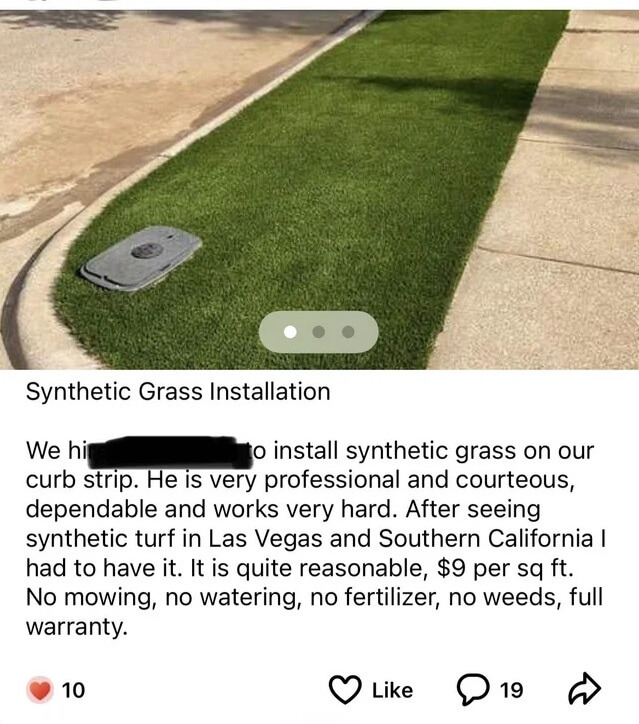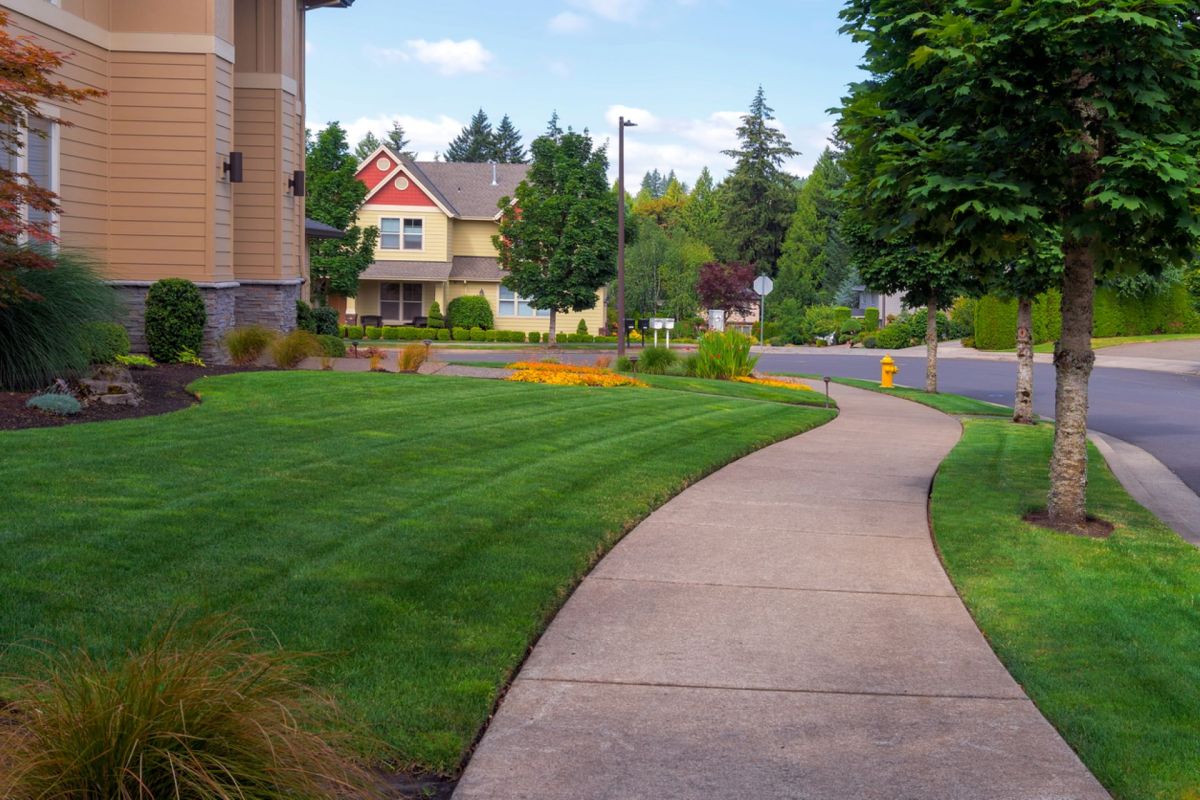At first glance, synthetic turf may seem like a relatively inoffensive solution to keep a green lawn that doesn't require a lot of maintenance. Especially in areas that are prone to drought, the fact they don't need watering would also appear to be a smart way to conserve water supplies.
But one landscape architect has exposed the problems with the material on a Reddit post after someone lamented the use of synthetic turf on a local sidewalk.
"I think I found something worse than lawns…" the caption on the original post read, with the picture showing a picture of a patch of turf lining the verge between a path and the road — commonly referred to as a "hellstrip."

"I am a landscape architect, one of the first places I worked would suggest astroturf to their clients all the time," the top respondent said. "It is disgusting! I would never suggest it to anyone, it is terrible."
While some of the issues with artificial grass might be becoming increasingly well known — the harmful forever chemicals used to make it can leach into the soil and kill plants, and they've also been known to lead to health problems for humans and animals if they enter the body — the Redditor laid out another notable concern.
They observed that the lack of organisms found in the turf means that germs and bacteria don't break down so easily. For example, if you have dogs that defecate and urinate on the material, germs can thrive. If the turf isn't irrigated regularly, the problem gets worse.
"Ew omg I didn't even think of the bacteria!" one commenter said.
Meanwhile, another user pointed out an additional concern when it comes to artificial grass.
"In the sun, in warm/hot climates, synthetic grass gets blazing hot — much hotter than the surrounding area," they said. "Playing fields/playgrounds of artificial turf can get to 150-180 degrees. Hot enough to burn."
Indeed, the plastic grass doesn't trap heat like normal grass would. It instead expels the heat into the surrounding area, leading to an uptick in temperatures. The surface itself can also be unsafe to touch with bare skin if it gets too hot.
If you're looking for a low-maintenance lawn that doesn't require a lot of water, clover is a hardy, drought-resistant option that keeps the desired green aesthetic.
Native plants should also be more tolerant to conditions typical to your area, so consider planting them if you don't want to be stuck with a dry, brown lawn.
Join our free newsletter for easy tips to save more, waste less, and help yourself while helping the planet.









